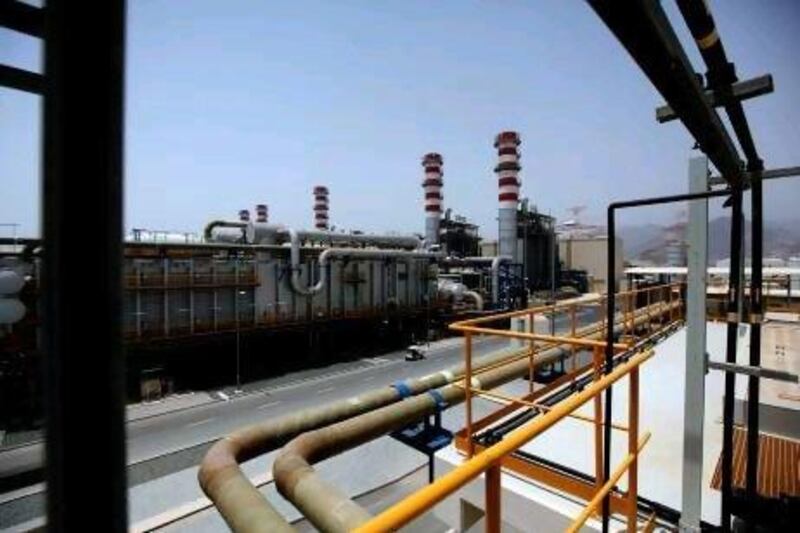Chinese contractors could grab as much as half of the Gulf market to build new power plants, according to the chief of the region's largest private provider of electricity and water.
Building Brics Emerging giants
Keep pace with the emerging economic powerhouses Brazil, Russia, India, China and South Africa Learn more
The new Rabigh power plant near Jeddah in Saudi Arabia is being seen as an acid test for the future success of Chinese power contractors in the Gulf.
Sepco 3 Electric Power Constructionand Dongfang Electricare building and providing the equipment for the plant.
It is on target to start generating electricity by May. If that goes without a hitch, it could lead to a fundamental shift in the regional contracting landscape.
"It's an absolute game-changer," said Paddy Padmanathan, the chief executive of Acwa Power, which holds a 40 per cent stake in the project. "The whole world is watching, no one is daring to do this until Rabigh is done."
Korean companies such as Hyundai Engineering and Construction, Samsung Engineering and Doosan Heavy Industries & Constructiondominate in the construction of power plants, a multibillion-dollar industry because of the rapid increase in the consumption of electricity and desalinated water. But Chinese players will push aggressively into the market and could hold a 50 per cent market share within five years, Mr Padmanathan estimates.
"There are those who will say it will take 10 to 15 years, but the Chinese have got there faster than people have projected every time," he says.
The entry of low-cost Chinese players has already affected the power plant construction sector. As soon as financial close for the project was achieved in July 2009, "it immediately put on enormous competitive pressure, and the price level came down dramatically", Mr Padmanathan said. He believes the significant drop in construction costs at the time cannot be attributed to the global recession alone.
Chinese equipment and construction companies will increasingly look abroad for business as the construction boom in their power sector is drawing to a close. The industry has a capacity to provide an additional 100,000 megawatts of power each year. But while China was adding about 80,000-90,000 megawatts each year until recently, this will drop to about 50,000 megawatts each year in the near future, Mr Padmanathan said.
Chinese companies will be prevented from taking a larger market share by the uncompetitive lending policies of the Chinese export credit agency. While export credit agencies (ECA) from most countries compete to provide the best possible financial terms to projects in a bid to promote their contractors, China's ECA has not entered this race. This reduced the competitive advantage of Chinese players.
"While their price is low, their financing cost pushes it up. So when I view it holistically, they may not be the most competitive for the given project," Mr Padmanathan said.
Tomorrow's exclusives tonight:
Industry Insights e-newsletter Get the pick of out premium Business content direct to your inbox. Sign up
Acwa will be looking to award two out of the four sizeable tenders it plans to float each year to Chinese contractors within two years.
The privately owned Saudi company at present holds stakes in assets producing 8,000 megawatts and 2.3 million cubic metres of desalinated water, mainly in the kingdom. This makes it the largest locally-owned power provider.
The company is on course for an initial public offering in 2013.
twitter: Follow and share our breaking business news. Follow us





